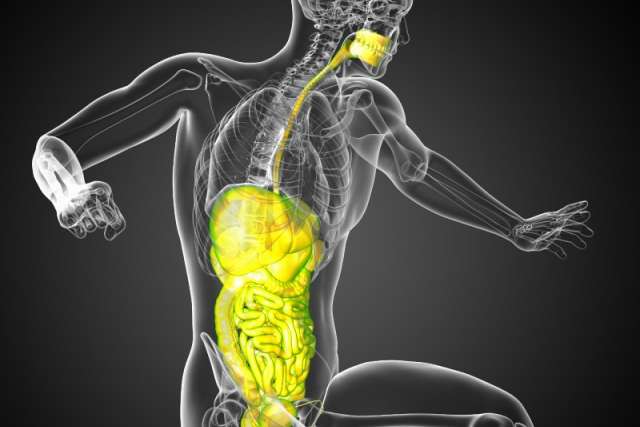The gut is made up of trillions of microorganisms—microbes, bacteria, and viruses living together in what is termed the "gut microbiome." The purpose of the gut microbiome is multifaceted: it plays a big role in nutrient metabolism, immune function, and affects inflammatory homeostasis of the body.
Past research has taught us that to keep these microorganisms healthy and harmoniously existing with one another, we need to maintain a healthy diet. Several recent research studies are showing that exercise may also have a significant impact on your gut physiology.
“There is new research out there that proves there is an interconnection with the gut microbiome and exercise,” said Vijaya Surampudi, MD, Clinical Chief of the UCLA Center of Human Nutrition. “They’ve seen, in both moderate and intense exercise, that there is some change in the microbiome composition.”
Several factors can alter the diversity of gut microbiota, including disease, infection, antibiotics and diet. Exercise, however, can modify gut microbiota by its positive impact on energy homeostasis; a biological process in which the cells in our body regulate energy production, energy expenditure and food intake.
How does exercise cause the gut environment to change?
Denise Alvey, RDN, a registered dietitian with UCLA Health Sports Performance powered by Exos, said that progress in research is helping clinicians understand how fitness positively alters the gut microbial environment.
“There are advancements in technology that are giving us the ability to look at how exercise, independent of diet, is changing the gut flora,” said Alvey. "It’s showing how cardiorespiratory fitness can influence a positive change in gut physiology. Longer duration or higher intensity, exercise allows for more oxygen to reach the brain and bloodstream. Researchers are saying this is an .”
Research is also looking at the effects of . This kind of exercise can influence the gastrointestinal tract (GIT) by reducing the transient stool time (the time it takes for food to move through the digestive tract). This is important for the microbiome because a healthy digestive tract means that gut microbiota can effectively perform their multiple functions, which includes optimizing the body’s cells that turn non-digestible components of food into energy.
Exercise can also reduce the risk of inflammatory bowel disease and colon cancer by increasing antioxidant levels, improving the body’s immune function and reducing levels of insulin, which can cause tumor cell division and growth within the microbiome environment.
Exercise is more effective on gut when accompanied by a good diet
Though exercise may have a beneficial impact on the gut, the microbiome won’t be fully optimized unless exercise is accompanied with a healthy diet, Alvey said.
“They complement each other to optimize overall health, and the same goes for your gut biome as well. If you are providing the body with nutrient-dense and anti-inflammatory foods as well as working out consistently, you will provide the body with what it needs to optimize all functions and boost the immune system.”
“Nutrition and exercise are not mutually exclusive,” Dr. Surampudi said. “By making dietary changes, you can change the composition of your microbiome rather quickly and start to feel better in just a few days.”
In addition, the gut microbiome can also play a role in an individual’s desire to work out.
In a recent , researchers used antibiotics to eliminate gut microbes in one group of mice while not giving any antibiotics to a second group. Using a mouse wheel, the researchers measured how long it took each group to exhaust themselves. They found that the microbiome-depleted mice became exhausted much quicker and subsequently began to run less on the wheel.
The researchers believe that the ‘motivation’ factor in each group of mice was impacted by the neurotransmitter known as dopamine, found in the brain of both humans and rodents that provides a sense of reward. The researchers found that dopamine increased in the normal mice, but not in the microbiome-depleted mice.
While these results are suggestive, “we need to see more evidence in human studies,” said Dr. Surampudi.
Still, she and Alvey both said, we’re still learning how everything impacts and is impacted by the microbiome.
“By having a good balance of both diet and exercise,” Alvey said, “you’re going to optimize your health.”




